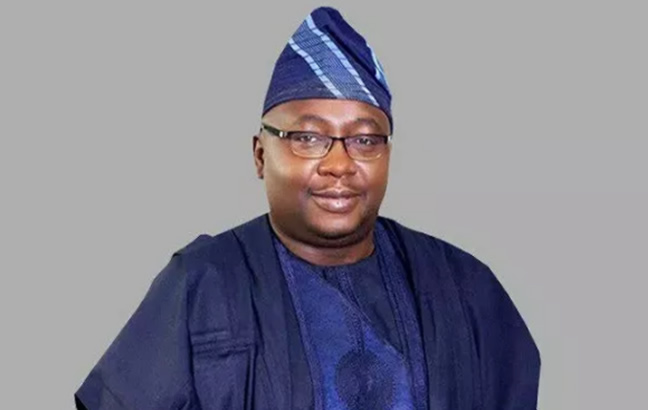No significant improvement in power sector over past two years – experts
Power
By Yunus Yusuf
Some power sector experts have expressed deep concern over the continued stagnation in Nigeria’s electricity generation, transmission, and distribution capacities, saying there has been no significant progress in the past two years.
In separate interviews with the Business intelligence (TBI Africa) on Sunday in Lagos, the experts criticised the operational performance of the sector, describing it as still being in crisis mode.
According to them, power companies are more focused on profit-making than on improving services to consumers or supporting the sector’s development.
Mr Chinedu Bosah, National Coordinator of the Coalition for Affordable and Regular Electricity (CARE), noted that the only major initiative from the Tinubu administration is a proposed $122 billion investment plan spread over 21 years.
He explained that this plan, tied to the National Integrated Electricity Policy, aims to diversify Nigeria’s energy mix by incorporating solar, wind, nuclear, and other sources.
However, Bosah described the plan as “largely unrealistic and based on market-driven principles that prioritise investor profits over public interest.”
“Nigeria has over 100 million people living in poverty,” he said.
“Many can’t even afford current electricity tariffs, let alone cope with future increases to attract new investors.”
Bosah warned that the plan may end up like many other unfulfilled government policies — “gathering dust in offices and forgotten.”
He argued that the only sustainable solution lies in massive public investment, not one driven by profit motives or unaffordable tariffs.
He lamented the widespread looting of public funds that could otherwise be used to develop key sectors, including power.
Bosah also criticized the government’s allocation of ₦10 billion to switch Aso Rock to an independent solar power grid, calling it “opportunistic and selfish.”
“If the government truly believes in its National Integrated Electricity Policy, why does it need a separate power source for itself while the rest of the country remains in darkness?” he asked.
Bosah further condemned the recent electricity tariff hike under the new ‘Band A’ category, which raised prices from ₦68/kWh to ₦225 — a 230% increase.
He described this as “insensitive to the suffering of millions of Nigerians.”
Regarding metering, Bosah said the Meter Asset Providers (MAP) scheme is another means of exploiting consumers, as many are forced to pay for meters that should be provided free of charge.
He said that while the Meter Acquisition Fund (MAF) initiative has distributed thousands of free meters, the country still faces a deficit of about 6.9 million meters.
“Because of this gap, millions of Nigerians are subjected to fraudulent estimated billing,” he said.
He said that CARE is demanding for free issuance of prepaid meters a reversal of power sector privatisation.
” Need for massive public investment under democratic control by workers and consumers to ensure affordable and reliable electricity supply
Similarly, Mr Samuel Ilori, National Coordinator of the All Electricity Consumers Protection Forum, echoed concerns that power generation has not improved — and may have worsened — in the last two years.
“Under Buhari, we had an average generation of 4,800MW,” he said.
“Today, we fluctuate between 3,500MW and 4,000MW — for a population of over 200 million.”
Ilori pointed out that although Nigeria has an installed capacity of 13,000MW, only about 5,000MW is effectively utilized due to obsolete equipment and weak infrastructure.
He also criticised the government’s recent move to ban the importation of solar panels, describing it as a contradiction of its energy diversification goals.
“Instead of encouraging renewable energy, they’ve made it less accessible by imposing restrictions rather than offering waivers or tax holidays,” he said.
He said that Despite receiving over $200 million in intervention funds from the African Development Bank (AfDB) and other sources, Ilori said the power sector remains stagnant. “This administration has experienced more grid collapses than any other in recent history — eight already between January and April this year,” he said.
While some of the outages were caused by vandalism, Ilori noted that “most could be prevented with better security and maintenance protocols.”
He accused the Nigerian Electricity Regulatory Commission (NERC) of negligence, saying it has failed to enforce regulations and has left consumers at the mercy of distribution companies (DisCos).
“NERC and the Ministry of Power appear to have gone to sleep,” he said. “The only thing they’ve actively pursued is tariff increases, with no corresponding improvement in service delivery.”
Ilori added that despite initiatives like the National Mass Metering Programme (NMMP) and the MAP scheme, the country still faces a metering gap of 7.8 million units.
“There have been no meaningful reforms,” he said. “Everything done so far seems focused on maximizing revenue without improving services. Even the recent re-categorization of feeders under Band A was partially reversed after public outcry — a clear sign of poor planning.”
Ilori concluded by urging the government to make the power sector genuinely attractive to serious investors by prioritizing infrastructure and technical capacity over pricing hikes.
“If necessary, the current monopolistic privatization model should be scrapped and replaced with a system that welcomes competent investors with the resources and expertise to transform the sector,” he said




